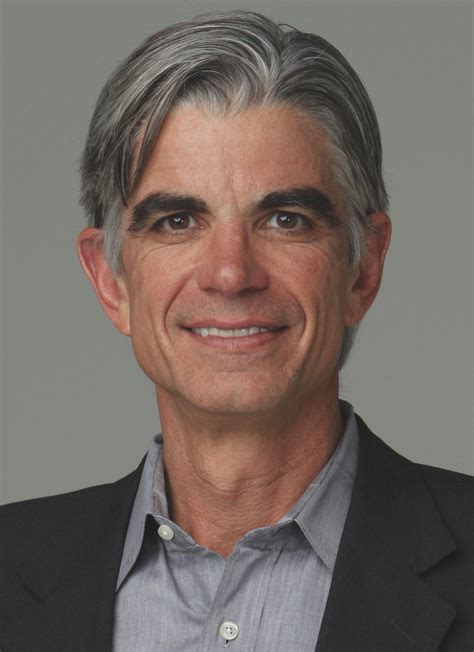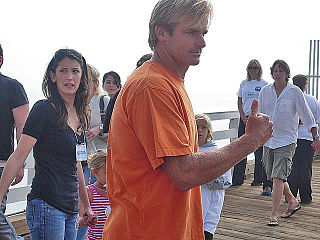A Quote by Fritjof Capra
When carbon (C), Oxygen (o) and hydrogen (H) atoms bond in a certain way to form sugar, the resulting compound has a sweet taste. The sweetness resides neither in the C, nor in the O, nor in the H; it resides in the pattern that emerges from their interaction. It is an emergent property. Moreover, strictly speaking, is not a property of the chemical bonds. It is a sensory experience that arises when the sugar molecules interact with the chemistry of our taste buds, which in turns causes a set of neurons to fire in a certain way. The experience of sweetness emerges from that neural activity.
Quote Topics
Activity
Arises
Atoms
Bond
Bonds
Buds
Carbon
Causes
Certain
Certain Way
Chemical
Chemistry
Compound
Experience
Fire
Form
Hydrogen
Interact
Interaction
Molecules
Moreover
Neither
Neural
Neurons
Nor
Our
Oxygen
Pattern
Property
Resides
Sensory
Set
Speaking
Strictly
Sugar
Sweet
Sweetness
Taste
Taste Buds
Turns
Way
Which
Related Quotes
Think of the actual physical elements that compose our bodies: we are 98 percent hydrogen and oxygen and carbon. That's table sugar. You are made of the same stuff as table sugar. Just a couple of tiny differences here and there and look what happened to the sugar: it can stand upright and send tweets.
Without justice being freely, fully, and impartially administered, neither our persons, nor our rights, nor our property, can be protected. And if these, or either of them, are regulated by no certain laws, and are subject to no certain principles, and are held by no certain tenure, and are redressed, when violated, by no certain remedies, society fails of all its value; and men may as well return to a state of savage and barbarous independence.
Your body, which is bonding millions of molecules every second, depends on transformation. Breathing and digestion harness transformation. Food and air aren’t just shuffled about but, rather, undergo the exact chemical bonding needed to keep you alive. The sugar extracted from an orange travels to the brain and fuels a thought. The emergent property in this case is the newness of the thought; no molecules in the history of the universe ever combined to produce that exact thought.
There is one way by which a strolling player may be ever secure of success; that is, in our theatrical way of expressing it, to make a great deal of the character. To speak and act as in common life is not playing, nor is it what people come to see; natural speaking, like sweet wine, runs glibly over the palate and scarcely leaves any taste behind it; but being high in a part resembles vinegar, which grates upon the taste, and one feels it while he is drinking.
Through death you find yourself, because you no longer identify with form. You realize you are not the form with which you had identified neither the physical nor the psychological form of "me". That form goes. It dissolves and who you are beyond form emerges through the opening where that form was. One could almost say that every form of life obscures God.
Chemistry comes about through the transformation of earth, air, fire and water. All chemistry is just movement within those things, and so we experience the joys and the sorrows of hot and cold, and dry and moist, because of these chemical transformations. In a similar way, we create and experience a world of time, space, motion and energy, through our intuitions, our thoughts, our sensing and our feeling.
It has been recognized that hydrogen bonds restrain protein molecules to their native configurations, and I believe that as the methods of structural chemistry are further applied to physiological problems it will be found that the significance of the hydrogen bond for physiology is greater than that of any other single structural feature.
Originally, the atoms of carbon from which we're made were floating in the air, part of a carbon dioxide molecule. The only way to recruit these carbon atoms for the molecules necessary to support life-the carbohydrates, amino acids, proteins, and lipids-is by means of photosynthesis. Using sunlight as a catalyst the green cells of plants combine carbon atoms taken from the air with water and elements drawn from the soil to form the simple organic compounds that stand at the base of every food chain. It is more than a figure of speech to say that plants create life out of thin air.




































